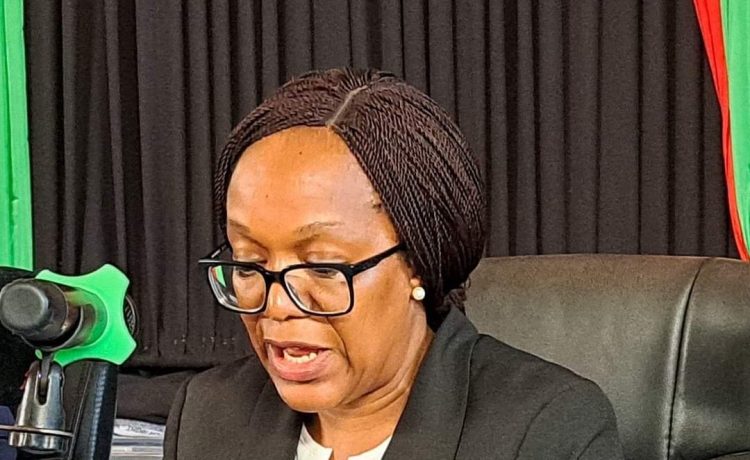The Public Affairs Committee (PAC), a quasi-religious body constituted of heads and leaders of different religious denominations in the country, has firmly pushed back against demands from opposition parties for the resignation of Malawi Electoral Commission (MEC) chairperson Justice Annabel Mtalimanja and Chief Executive Officer Andrew Mpesi.
These calls, led by the Democratic Progressive Party (DPP) and supported by its allies in the UTM and Alliance for Democracy (Aford), have been described as unfounded by PAC spokesperson Gilford Matonga.
Matonga emphasized that the MEC has historically struggled to garner unanimous support from all political divides since the advent of multiparty democracy in Malawi.
“This is not new. We have seen political parties historically finding fault with the commission’s composition. What matters is not party approval, but that the commission executes its mandate according to the electoral law,” he stated.
He also commended the MEC for its efforts in conducting the first phase of the voter registration exercise, which he deemed “largely successful despite minor technical challenges.”
According to Matonga, these minor setbacks were not widespread nor significant enough to undermine the legitimacy of the registration process. “Such minor setbacks are expected, but overall, MEC has done a commendable job,” he added.
Opposition parties, however, express concerns that Mtalimanja and Mpesi alleging that they have affiliations with the ruling Malawi Congress Party (MCP). They accuse the MEC Chair of being a family relation of former MCP leader, the late John Z. Tembo, complaining that the alleged affiliation with the MCP compromise their impartiality, calling for their resignation to ensure fair election management ahead of the 2025 elections. Mtalimanja has categorically denied any affiliations with the MCP, stating that she is a judge in the judiciary and does not belong to any political party.
Sylvester Namiwa, Executive Director of the Centre for Democracy and Economic Development (CDED), echoed these sentiments, stating that “partisanship has no place in electoral administration.”
In response to these claims, Matonga dismissed the allegations as baseless, arguing, “There is no evidence that MEC has operated on a biased footing under Mtalimanja or Mpesi’s leadership. Baseless accusations only serve to weaken public trust in the electoral system.”
Further support for the commission came from Benedicto Kondowe, chairperson of the National Advocacy Platform (NAP), and Gift Trapence, chairperson of the Human Rights Defenders Coalition (HRDC), who defended the electoral body’s management of recent successful byelections in Mangochi and Dedza.
Compounding the controversy, opposition leaders have expressed strong objections to MEC’s planned use of Smartmatic technology in the upcoming elections. They allege that employing this technology could lead to election tampering, even though Smartmatic has been successfully utilized in elections across several neighboring countries.
In a surprising divergence from party lines, DPP Commissioner Francis Kasaila, who is one of the MEC Commissioners representing DPP, publicly endorsed the Smartmatic technology, stating, “Smartmatic has a reputation of supplying gadgets for the management of elections across the globe. They supplied elections equipment to Zambia, and we haven’t heard of any issues. They also supplied election materials in Kenya without any problems.” Although the DPP has since distanced itself from Kasaila’s remarks, they have yet to recall him from his position at MEC.
Political analysts have advised caution, warning opposition parties against hastily dismissing MEC’s technological upgrades. Josiah Chunga remarked, “With technological advancements comes the need for election bodies to stay current. Banning Smartmatic would be a step backward.” He noted that the effectiveness of any technology hinges on the competencies of its users rather than the technology itself.
Another analyst, Henry Shonga, echoed these thoughts, asserting that opposition demands could jeopardize the election process. “MEC’s goal should be to improve electoral transparency and efficiency. Blocking new technology based on unverified fears could hinder that progress,” he cautioned.













